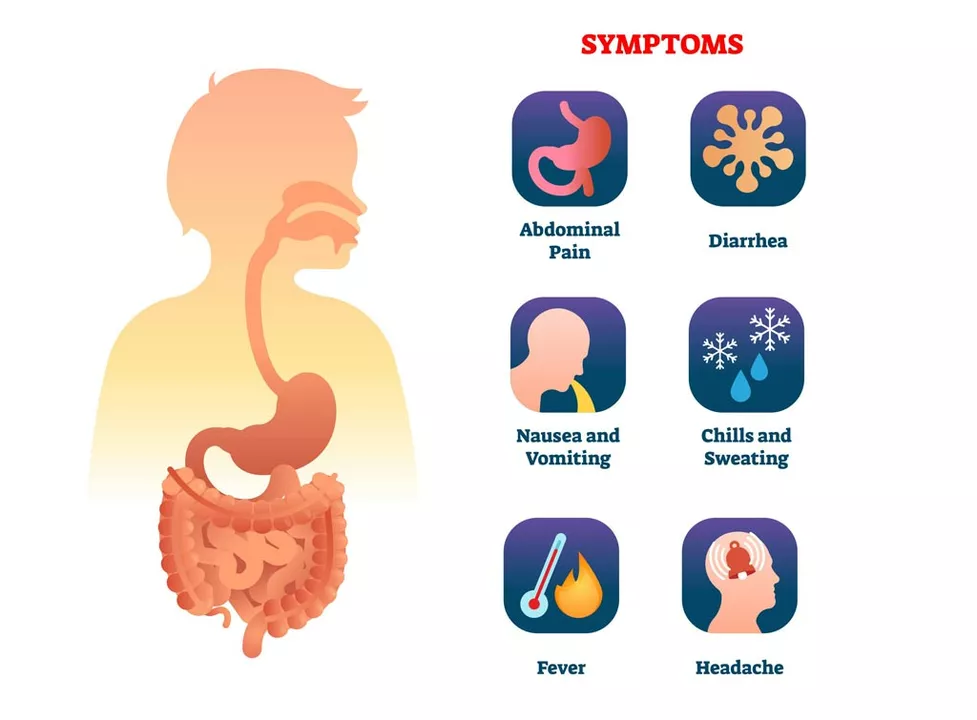Understanding Gastroenteritis: Causes and Symptoms
Gastroenteritis, commonly known as the stomach flu, is an inflammation of the stomach and intestines. It can be caused by various factors such as viruses, bacteria, parasites, or even certain medications and food intolerances. The most common symptoms of gastroenteritis include nausea, vomiting, diarrhea, abdominal pain, and fever. It's important to understand the causes and symptoms of gastroenteritis because it can have a significant impact on your heart health.
When you are experiencing gastroenteritis, your body loses a lot of fluids and electrolytes, which are essential for maintaining a healthy heart function. If left untreated, gastroenteritis can lead to dehydration, which can result in a strain on your heart. This is why it's crucial to know the signs and symptoms of gastroenteritis and seek medical attention if you suspect that you have it.
Dehydration: A Serious Threat to Your Heart
Dehydration is a common side effect of gastroenteritis, as your body loses a significant amount of fluids through vomiting and diarrhea. When you are dehydrated, your blood volume decreases, causing your heart to work harder to pump blood throughout your body. This increased workload can lead to an elevated heart rate and a drop in blood pressure, putting you at risk for more serious heart-related issues.
If you suspect that you are dehydrated, it's essential to drink plenty of fluids such as water, clear broth, or oral rehydration solutions. Avoid caffeinated beverages and alcohol, as they can worsen dehydration. You should also monitor your urine output and color; if it becomes dark and concentrated, it's a sign that you need to drink more fluids.
Gastroenteritis and the Risk of Arrhythmias
Another potential impact of gastroenteritis on your heart is the development of arrhythmias, or abnormal heart rhythms. This can occur due to the loss of electrolytes like potassium and magnesium, which are essential for proper heart function. Electrolyte imbalances can disrupt the electrical activity in your heart, leading to irregular heartbeats that can be life-threatening in some cases.
If you are experiencing symptoms such as palpitations, shortness of breath, chest pain, dizziness, or fainting, it's important to seek medical attention immediately. Your doctor may recommend tests like an electrocardiogram (ECG) to detect any abnormal heart rhythms and suggest appropriate treatment to restore the balance of electrolytes in your body.
Managing Gastroenteritis to Protect Your Heart
The best way to protect your heart during a bout of gastroenteritis is to manage the symptoms and prevent complications like dehydration and electrolyte imbalances. This can be achieved by drinking plenty of fluids, getting adequate rest, and following a bland diet consisting of easily digestible foods like bananas, rice, applesauce, and toast (commonly known as the BRAT diet).
Over-the-counter medications can also help manage symptoms like nausea and diarrhea, but it's important to consult your doctor before taking any medication, especially if you have a pre-existing heart condition. Your doctor may also prescribe medications to help manage your heart rate and blood pressure if necessary.
When to Seek Medical Attention
While most cases of gastroenteritis can be managed at home, there are certain situations in which you should seek medical attention. If you experience any of the following symptoms, it's important to consult your doctor:
- Severe abdominal pain
- High fever (above 102°F or 38.9°C)
- Signs of dehydration, such as dark urine, dizziness, or a rapid heartbeat
- Blood in your vomit or stool
- Diarrhea that lasts more than three days
- Uncontrolled vomiting
Remember, taking care of your overall health, including preventing and managing gastroenteritis, is essential for maintaining a healthy heart. Don't hesitate to reach out to your healthcare provider if you have any concerns or questions about your heart health and gastroenteritis.



Bryan Heathcote
I never realized how much gastroenteritis could mess with your heart. I thought it was just a bad stomach bug, but the electrolyte imbalance thing is wild. My cousin had it last year and ended up in the ER with a weird heart rhythm. Never thought to connect the dots.
So yeah, drink the damn Gatorade. Not just water. Electrolytes matter.